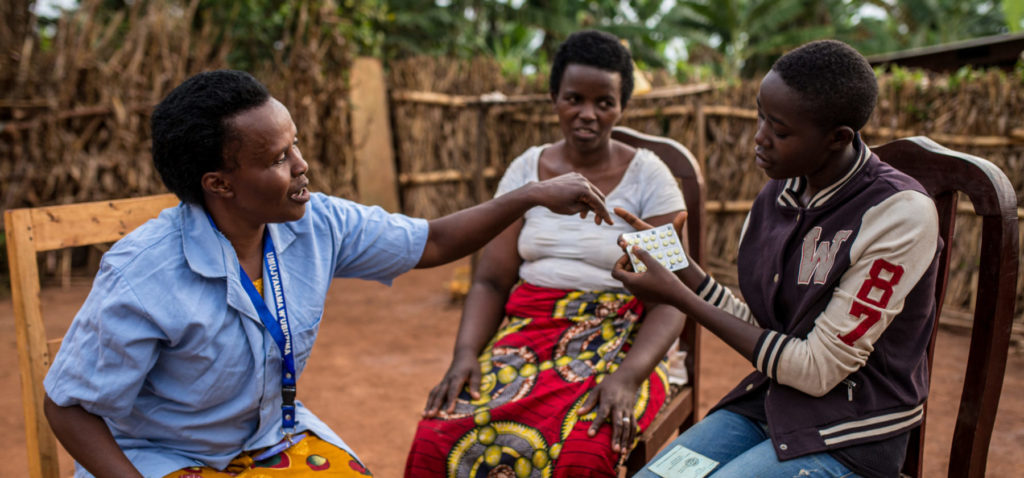Fifty-nine years ago, a call for greater unity led 32 African countries to sign the Charter of the Organization of African Unity (OAU), which later evolved into the African Union (AU), essentially the first union of Africa countries.
Today, World Africa Day not only commemorates the significance of that moment, but the day of the signing, May 25, continues to offer an opportunity to reflect on the continent’s shared value of unity.
That’s why this month, Africa’s continued calls for even greater unity has led to the launch of a new coalition, one aimed at working toward health, health security and economic recovery across Sub-Saharan Africa, at a moment in history when the pandemic has overwhelmed health systems, many of which have been unable to maintain routine care and surge for emergencies, especially at the community level.
Called the ‘Africa Frontline First,’ this new community health financing and strengthening initiative, alongside the Global COVID-19 Summit, will work to build Africa’s community health workforce across 10 countries, professionalizing 200-thousand community health workers by 2030, reaching over 100 million people, to finally end the COVID-19 pandemic, prevent future pandemics and achieve universal health coverage.
"The legacy of COVID-19 must be robust and resilient primary healthcare systems with community health workers as the backbone. Together, we are building the coalitions of actors required to make bold reforms and build back better for the COVID-19 response, and beyond,” said Ellen Johnson Sirleaf, Former President of Liberia.

The value of community health programs has been proven. Utilizing community health workers, the U.S. President’s Malaria Initiative (PMI) delivered 34 million seasonal treatments (SMC) and 155 million rapid diagnostic tests (RDTs) in FY 2021. But the annual financing gap for community health in Africa alone reached $4.4 billion in 2020, contributing to millions of preventable deaths. Africa Frontline First Initiative will deploy new funding mechanisms to build resilient community health systems and achieve lasting impact.
“Africa needs two million additional community health workers to serve its population. The partnership between the African Union COVID-19 Commission and the Africa Frontline First initiative will increase our health workforce to improve access to community-based care. These health workers are needed to implement primary health care as part of universal health coverage,” said Cyril Ramaphosa, President of the Republic of South Africa.
Community health workers trained, equipped, and salaried through Africa Frontline First will provide life-saving primary care, expand critical surveillance for emerging disease threats, and accelerate economic recovery in hard-to-reach communities across Africa. A professional community health workforce provides dignified jobs, especially for women, who make up 70% of the global workforce and currently subsidize health care by an estimated $3 trillion annually through their unpaid and underpaid work.
“[Community health workers] can truly be the nexus between universal health coverage and health security, as they can improve access and uptake of health services, sanitation and hygiene, and primary healthcare to the community and improve overall health outcomes,” said Dr. John Nkengasong, Africa CDC Director.
To learn more about Africa Frontline First, visit www.africafrontlinefirst.org.


